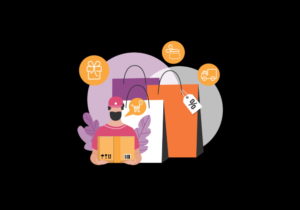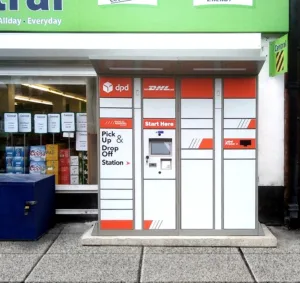Partner Content
Partnership marketing has the power to turbocharge corporate social good initiatives for retailers, writes Daisy-Blue Tinne, Director, Channel Partnerships EMEA at Impact
With the modern-day shopper actively seeking socially responsible retailers, partnership marketing represents a great – and often under-leveraged – way to work with others that support and identify with an ethos. It offers the potential to turbocharge positive social initiatives for the benefit not only of individual companies but also society as a whole.
Impact’s PX 2021 recently put this topic under the spotlight, in a session featuring Emily Aye, Affiliates and Partnerships Manager at Starling Bank and Julieta Luca, Affiliate Marketing Manager at KidStart; a loyalty programme which enables whole families to save for children’s futures.
When considering how partnerships can be optimised and used as a driving force for good, both stressed the importance of effective communication. This can swiftly create useful habits, they said, and make it easier to put social purpose front and centre of campaigns – enabling cut-through even in cluttered markets. Yet, too often, companies don’t consider the importance of ethos and social good when reaching out to potential partners.
Emily pointed out that Starling Bank, for instance, has already received overwhelmingly positive feedback as a result of initiatives such as its move to go paperless, to run on renewable energy and to make debit cards with recycled plastic. Its support of Kew Gardens’ Secret World of Plants and A Trillion Trees, along with the World Wildlife Fund, has also been extremely well-received. What’s more, during the pandemic, Starling Bank enabled individuals to give a trusted person a card to shop on their behalf. Starling Kite, a debit card for kids, was also launched recently and Emily was quick to point out that this has opened up ‘a whole new world’ of other partners that she can now reach out to.
The opportunities are endless when it comes to partnering with like-minded companies to strengthen not only hero initiatives, but also day-to-day branding for retailers and KidStart’s Julieta pointed out that she is also seeing high demand for sustainable companies in the ecommerce sector.
“We feel a responsibility to ensure we vet the retailers that we list on our site,” she said. “But we wouldn’t shut somebody down because they’re not a B Corp.
“To me, partnership success can be about ROI but it can also be about how engaged your base is and how much they trust you – which is equally important,” she added.
Emily agreed that, while B Corp is a great accreditation, ‘baby steps’ are just as important. “If every business did one thing to help people or the environment, just imagine the impact that would have,” she said.
In the world of partnership marketing, ethical metrics can be built into post-campaign analysis, with the panel agreeing that sharing data with partners is incredibly important in order to reap the potential benefits of collaborations.
The opportunities for new ideas and collaborations are ‘vast’. Unlike with other marketing channels, in partnership marketing, you don’t need to focus solely on ROI and KPIs, stressed Emily, adding: “That collaborative back and forth really generates new ideas.”
Meanwhile, KidsStart is currently building out a way of categorising sustainable and eco-friendly retailers on its site, to make them easier to browse for its members and to highlight socially responsible credentials. Having seen a rise in interest, Julieta points out that, ultimately, it is what their members want. “They will be voting with their wallets with every purchase that they make,” she said. “It’s a virtuous circle.”
It’s important that the retail industry as a whole continues to support partnerships with purpose. “Companies are increasingly concerned about their investments and want to know they are doing good and not doing harm,” said Emily, while Julieta added: “It’s about thinking beyond what you are doing in the moment. It’s thinking in the long-term. As a consumer myself, I’m interested in ethical products and ethical retailers but it extends beyond this. Shoppers vote with every purchase. They are an intrinsic part of helping drive change for good.”
Indeed, we could all, as consumers, be more thoughtful about the money that we’re spending and the brands that we choose to support. Fortunately, partnership marketing can help to make this happen.







